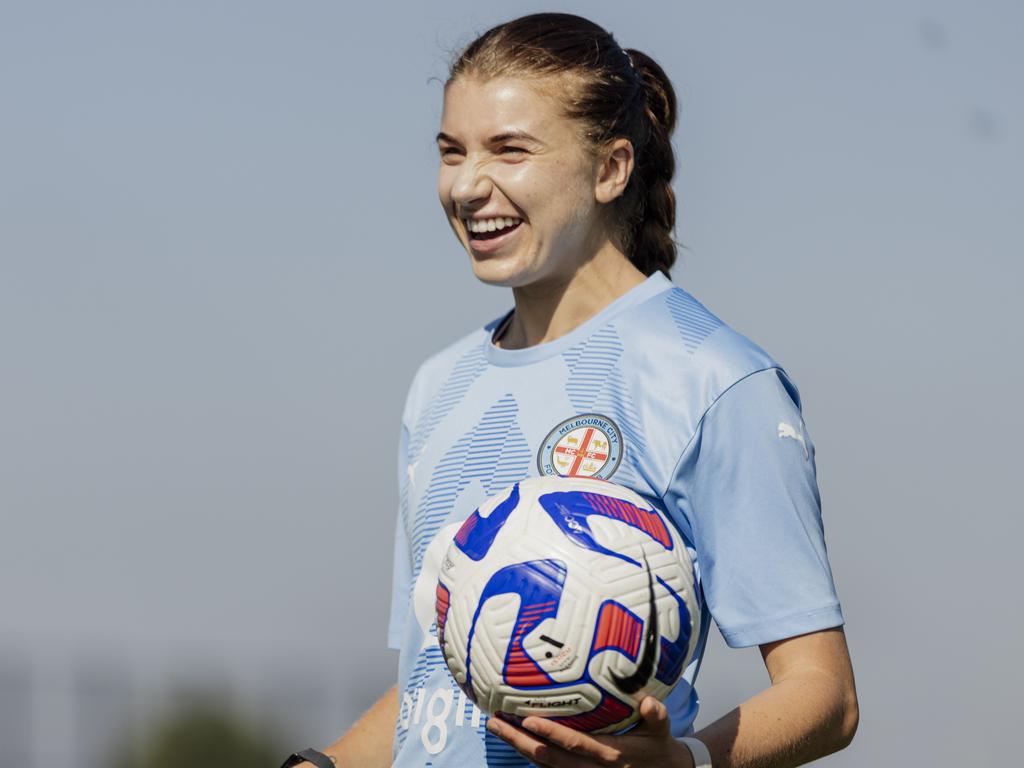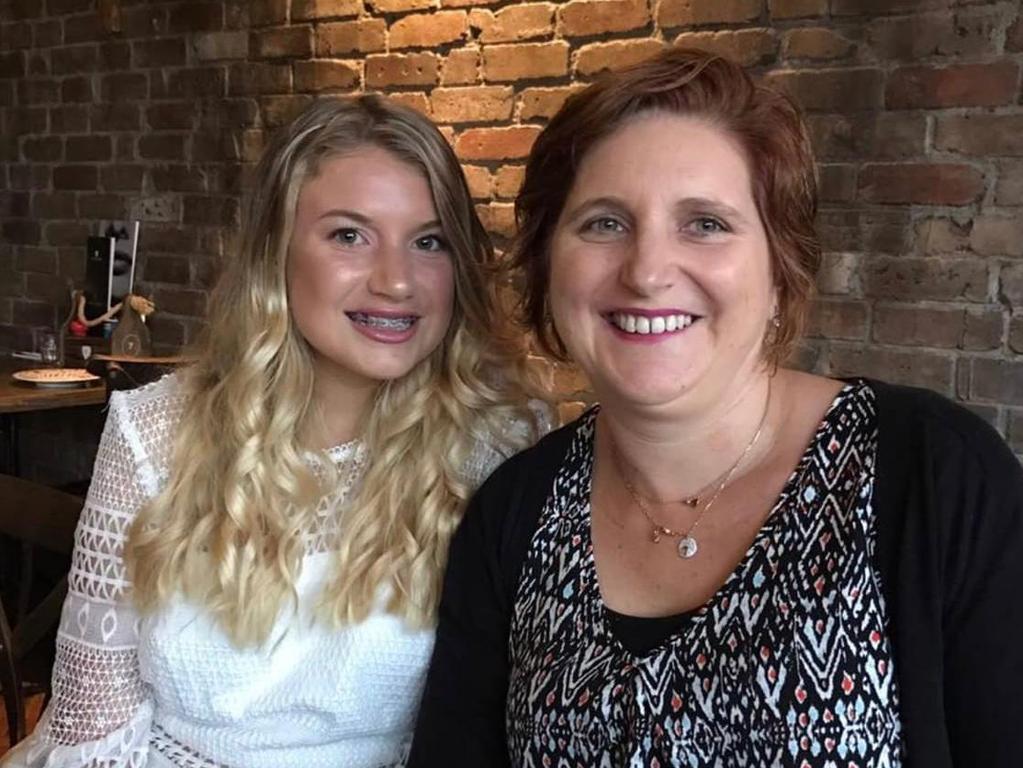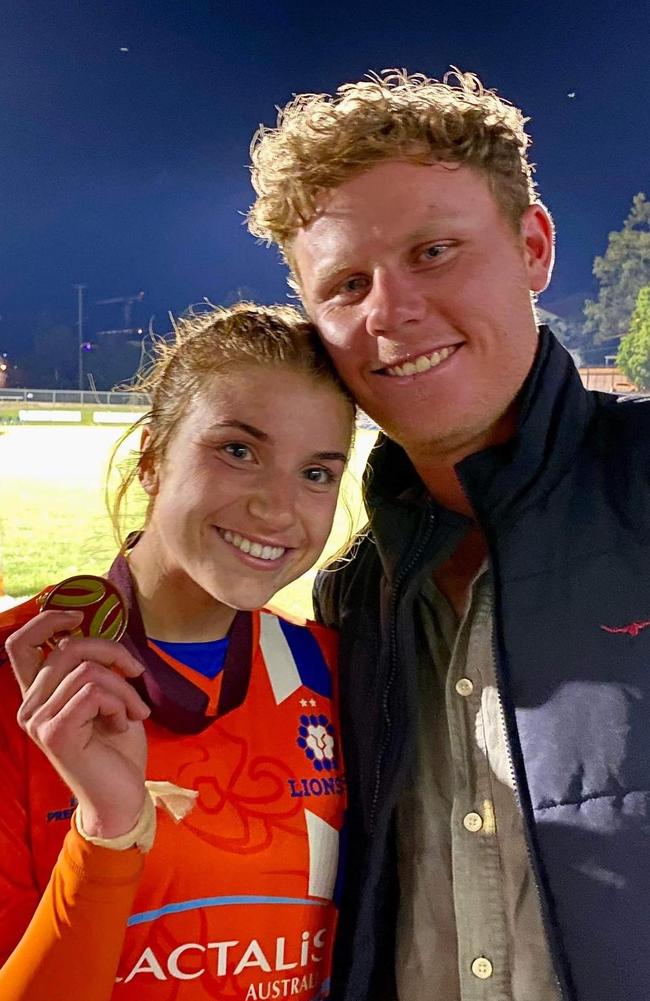YGT: How Melbourne City FC player came back from breaking point
A top soccer player has revealed how she accidentally stumbled down a dark path on her quest to become a professional athlete.

Welcome to You Got This, news.com.au’s weekly fitness series featuring stories and ideas from real women who’ve experienced it all.
A professional soccer player has revealed how chasing her dream to play at the top level accidentally sent her down a dark path of anxiety and eating struggles.
Chelsea Blissett, who plays in the Women’s A-League for Melbourne City, moved from her hometown of Albury, on the NSW-VIC border, to Sydney as a teenager in her quest to get noticed by the top clubs in the competition.
But, without her family around her, Chelsea felt isolated and developed gripping panic attacks that led her to seek comfort in food.
When she returned home for the summer holidays – things took a turn for the worse.

“I would like to buy lollies, chocolates and stuff like that, and bring them home and use that as my outlet [when I was feeling low],” she told news.com.au.
“It didn’t seem that abnormal because we’re all hungry kids, especially as athletes, but then I understood what my binges were becoming.
“When I came home, that was the first time I had that little voice saying ‘You know how to get rid of it and it’ll make you feel so much better’.”
She then did what she felt was necessary to rid her body of the food.

As her binges became more frequent, she would punish herself for eating, but would then feel overwhelmed with guilt.
This became the agonising cycle Chelsea lived in – until one day she had enough.
“I thought ‘I literally can’t do this anymore’. My parents were coming [to visit] the next day and I was doing all this stuff without them knowing,” she said.
“I felt I needed to change, so I went the opposite direction and put all my focus and energy into exercising and healthy eating.”
She said it started normally at first, speaking to her parents about wanting a healthier lifestyle. However, her focus on doing more soccer training quickly spiralled, leading to her cutting out food groups and meals and eventually skipping meals altogether.

In addition, Chelsea, who went to a sports high school, started to take on extra workouts on top of the intense soccer training and gym sessions she did during and after school.
At first no one noticed the change in her, as she was an athlete, but it all came to a head when she stayed at a friend’s house.
She’d been caught in the bathroom by her friend’s parents in the middle of the night.
“They sat me down and said, ‘Sweetie, we love you like our own, but you need to tell your mum,” Chelsea explained of the raw moment.

A few days later, Chelsea video called her own parents in what she said was the most difficult conversation she’d ever had.
“I was getting such bad anxiety about it, that I couldn’t do it. I couldn’t sit, I could barely pay attention in class, I was very, very nervous to tell them,” she said.
“I think it took me two days to kind of build up the courage to tell them what was going on.”
Her parents, living thousands of kilometres away, had no idea what Chelsea had been hiding so it came as a huge shock, causing her mother bursting into tears.
“As a parent, your child coming to you saying, ‘I’m sick’, [in the way I was], of course, that little bit of, ‘Am I bad parent’ kicks in,” Chelsea said.
“But by the end of the night, we were discussing what we needed to do as a family and how to approach it from here.”
Not long after, Chelsea saw a doctor, and was referred to the Royal Children’s Hospital in Melbourne where she worked with psychiatrists and dietitians to improve her mental health and her relationship with food.
Chelsea was stunned when doctors explained how her eating disorder had affected her physical health.
Her limbs had begun to turn purple. She also had deep bags under her eyes and was always cold.
Doctors explained this was caused by the fact her body didn’t have enough fuel.

For two months she didn’t exercise and focused on getting her health back on track and eventually after lots of hard work, Chelsea got to a place where doctors were happy with her progress.
Slowly she reintroduced exercise, and together with the new healthy eating habits she’d developed in hospital, she was able to get back to chasing her soccer dream.
Eighteen months later, she was signed to Melbourne City FC, which within five years of kicking off their women’s team secured four championships and two premierships.
“I didn’t straightaway come out with [the fact I was in recovery with an eating disorder],” Chelsea said.
“Obviously. I was only 18 and this is the biggest opportunity I’ve ever had when it comes to football.”
But, once she was officially signed, she did speak to the medical team about what she’d been through.
More Coverage
From the moment she told them, she felt supported by the entire club.
As the women’s competition heads into finals, Chelsea decided she would speak out about her experience to help others who may be going through the same thing, particularly with the age of social media pushing “ideal” bodies but not discussing how to get help when things become out of control.
In a bid to share her story, she filmed a documentary with Gold Leaf Creative for the Melbourne City’s website, where there was an outpouring of support.






